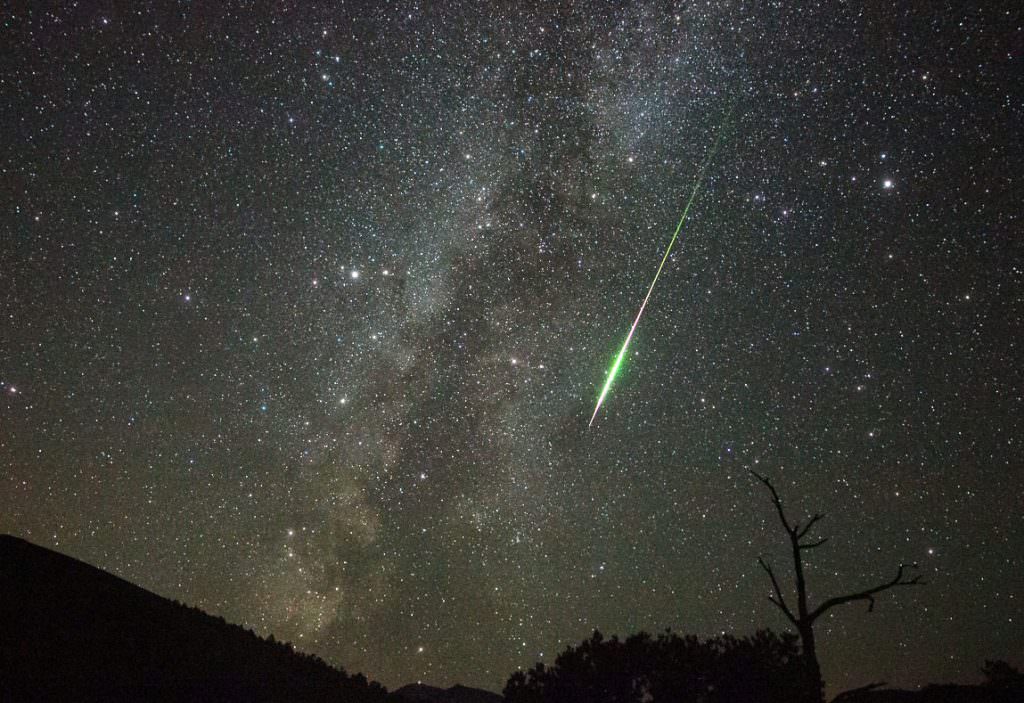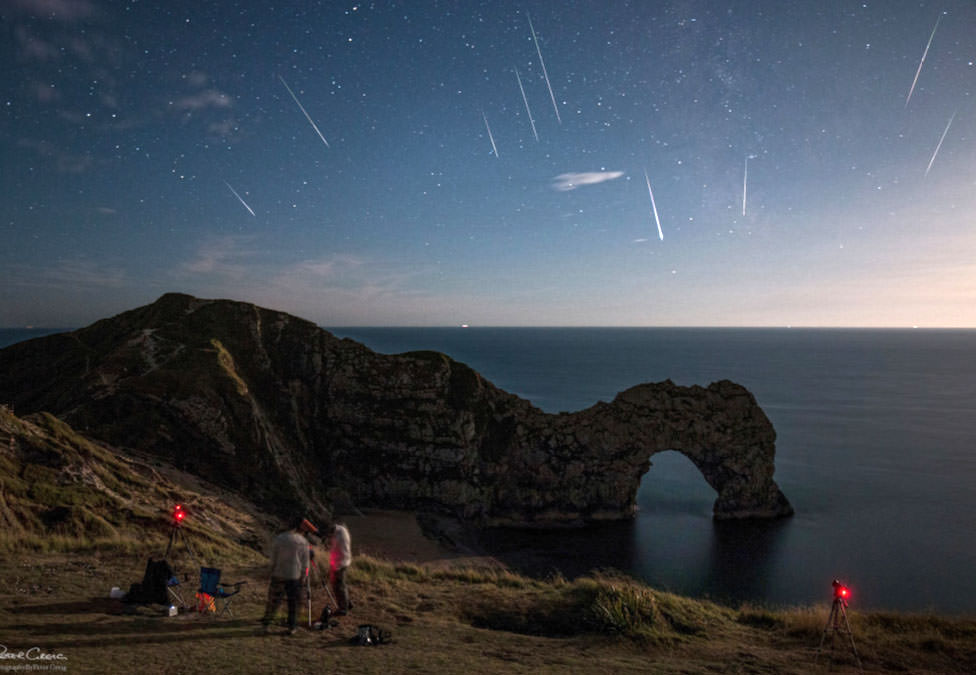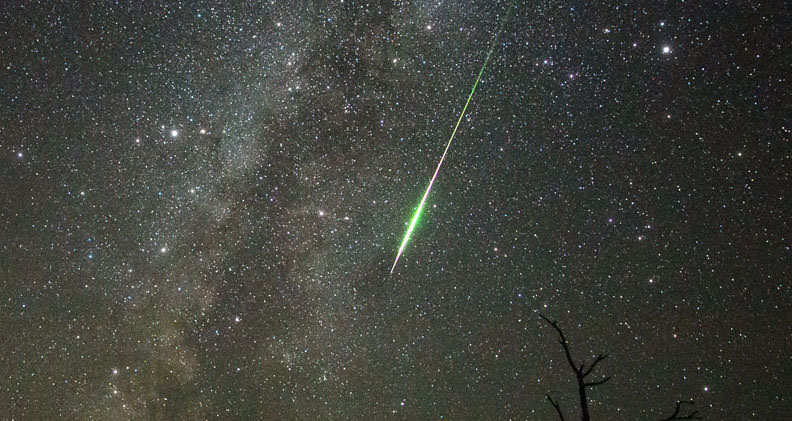We’ve all read the advice, during a meteor shower there is no equipment needed. All you need to do is lay back and wonder at one of the most spectacular sights the universe has to offer. That’s about it though and while you lay back on a lounger and watch it really can be a wonderfully grounding and relaxing experience. Unless you happen to be on National TV and miss a meteor behind your head and just tell the world there’s nothing to see. Not that I’m bitter about that of course!
Continue reading “Can Meteor Showers Be Dangerous to Spacecraft?”Perseid Meteor Shower Briefly Storms, Still Has Legs

The Perseid meteor shower must have looked fantastic from 10,000 feet. That’s how high you would have had to go to get past the pervasive fog and overcast skies at my home last night. Tonight looks a little better for weather, so I’ll do what all hopeful amateurs astronomers do. Set the alarm for 2 a.m. and peek out the shade looking for those glimmers of starlight that indicate clear skies.

From observations reported as of mid-afternoon to the International Meteor Observers 2016 Perseids Quick-Look site, it appears the greatest activity or highest meteor counts happened over Europe and points east in two outbursts: a brief but intense display around 23:15 Universal Time (6:15 p.m. CDT in daylight) August 11 when some observers briefly saw up to 15 Perseids a minute (!) with many bright ones, and a second peak starting around 2:00 UT (9 p.m. CDT) and lasting till 5:00 UT (midnight CDT).
90+ Perseid meteors captured on video August 11-12, 2016 by Ohio amateur John Chumack
While Europeans clearly hit the jackpot — some observers calling it the best since the 2002 Leonid storm — U.S. observers varied in their meteor counts. A few thought the shower was a bust, others reported numbers more typical of an “average year” shower. It appears that Earth passed through a dense filament of comet dust while it was night in Europe but late afternoon in the Americas. C’est la vie météore!
We should be past peak by today, but experience shows that tonight should still be a very good time for Perseid watching. Indeed, the next few nights will reward skywatchers with at least a dozen an hour. I’ll be out watching and hopefully not imagining what’s happening 10,000 feet over my head. Good luck to you too!
ISS passes Overhead and a Meteor Flashes Through the Sky
UT reader Bryan Stewart sent us this great video, and wrote, “I was out on the 10th shooting video with my d7000 and 300mm lens of an ISS pass and got surprised by a Perseid meteor.”
Take a look!


